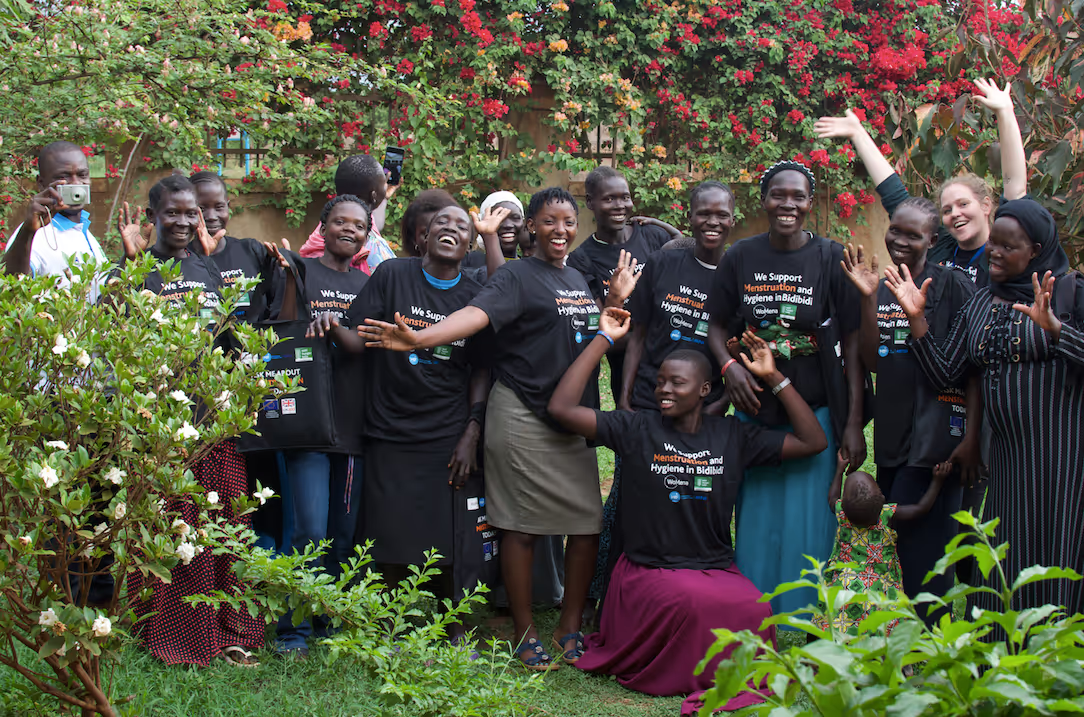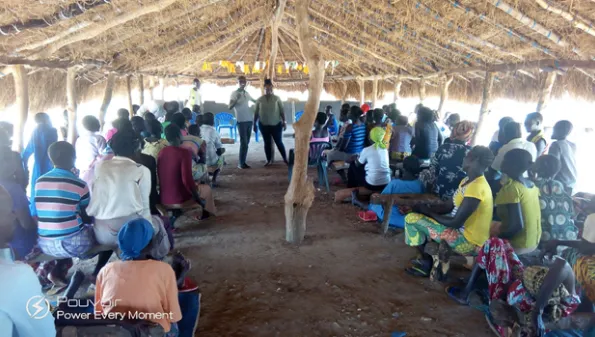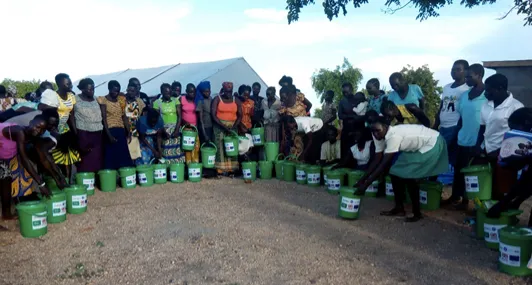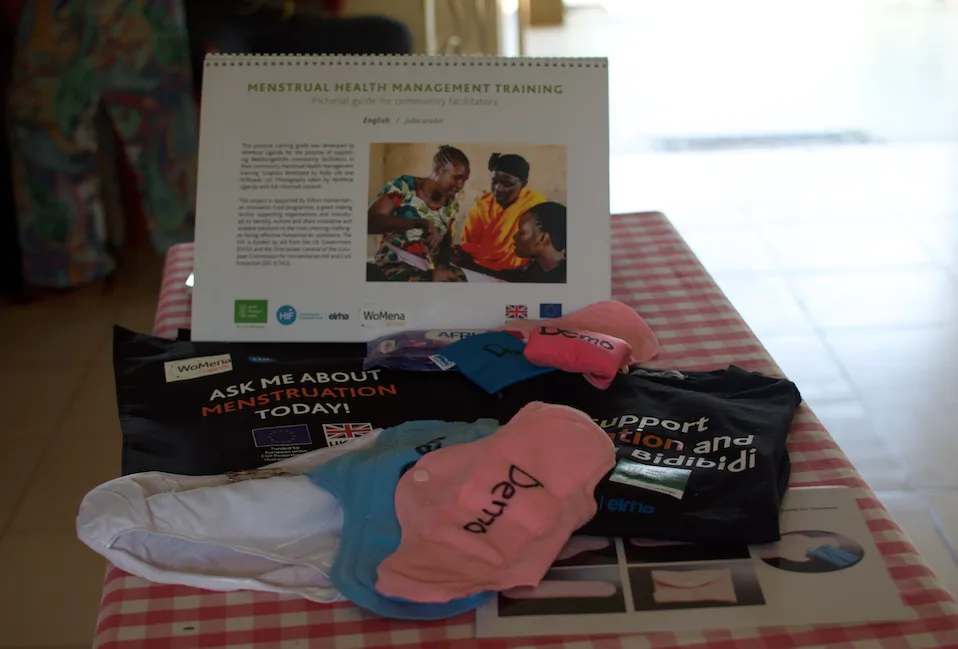What Happens When We Can’t Deliver What We Promised?
23
April
2020
Type
Grantee insights
Area of funding
Humanitarian Innovation
Focus areas
No items found.
Year

Menstrual health and hygiene (MHH) solutions are being tested and implemented in humanitarian contexts through various approaches, including MHH education and distribution of disposable and reusable pads and menstrual cups. Yet, there are no rigorous studies on the effectiveness of the provision of MHH education and product distribution in humanitarian contexts. A central aim of the “Feasibility assessment of reusable menstrual products in humanitarian programming” study was to generate evidence on effective solutions to address challenges concerning MHH. Despite obtaining support from the Ministry of Health and UNHCR in Uganda, the project was unfortunately not able to get ethical approval to commence the study due to concerns related to the lack of studies on menstrual cups in the general population in Uganda and the available WASH facilities in Bidibidi Refugee Settlement.
Cancellation of project
Ending the project was a disappointment for WoMena Uganda. For partners working on the ground, the cancellation of intervention activities significantly impacted their working relationship with communities in Bidibidi Refugee Settlement. To the communities where the project was planning to implement the cancellation of the project left a noticeable gap in addressing the menstrual health needs of girls and women.
Although it is important to ensure that study participants are not exposed to the intervention prior to baseline activities, this is not always feasible. In order to support the design of the intervention and the study tools, an exploratory visit to some of the communities was carried out in order to better understand community structures and major barriers to adequate MHM. A consultation with community members and Welthungerhilfe (WHH), the partner working in the settlement, was carried out to determine who should be trained as community facilitators. Due to the delay in obtaining ethical approval, community facilitators were selected and trained prior to the start of the study, to give them sufficient time to familiarise themselves with the provided menstrual products and knowledge. These activities in themselves raised expectations, which were only exacerbated by the need to address MHH expressed by women and men in the communities.
Thanks to the donation of 400 reusable pads from AFRIpads and approval to spend some of the remaining project budget on closure activities from HIF, WoMena Uganda and WHH carried out community dialogues, a stakeholder meeting with UNHCR and other humanitarian actors, refresher trainings and distribution of MH kits to 400 out of the planned 2000 women. As one of the main concerns raised by the ethical approval committee were related to the use of menstrual cups in a refugee population, it was decided to exclude menstrual cups from closure activities. It was also decided to distribute the MH Kits in only four out of the 13 target communities to ensure that WHH is able to provide continued support to those communities, ensure effective use of the products distributed and collect M&;E data on the activities for continued learning, rather than reach all target communities.

Build capacity and continue learning
A two-day refresher training to eleven community facilitators from the three refugee villages and one host village, selected by WHH, was conducted. The refresher training aimed to prepare the selected community facilitators to conduct sessions on MH education using the guiding tools prepared by WoMena &; WHH, to the 400 women selected for closure activities and support WHH in distributing the MH Kits. Many community facilitators were disappointed that the menstrual cup would not be included in the MH Kit and that they would not have the opportunity to share their user experiences and train others on its use.
Each facilitator received a new handheld pictorial training tool, a waterproof bag, a t-shirt and a pair of demonstration underwear and demonstration AFRIpads. This toolkit was developed iteratively with feedback from community facilitators throughout the project preparation stage. This was the first opportunity to test the full training toolkit prototype and train refugee women in using the new pictoral training tool, with simplified English and Juba Arabic explanatory text. Facilitators were positively receptive to the training tool, but two days were not sufficient to train them in the use of the tool and the WHH team had to provide continued support. For future trainings, to ensure that community facilitators are able to independently deliver training sessions, we would recommend an additional practice day.Community Dialogues: Disappointment and confusion
WHH carried out community dialogues on MHM and closure meetings in all 13 planned implementation villages. The aim was to ensure that communities were fully informed on the reasons for cancellation of the project and given the opportunity to express their opinions about the project closure. The meetings were supported by WHH and community facilitators and had a total attendance of 774, with 12% male attendees.
Many community members had heard about the cancellation of the study prior to the closure meetings and there were notable feelings of jealousy and disappointment. One of the Refugee Welfare Council Leaders noted
‘’I feel so sorry for the women in my village because they have missed out on something of value as women’’.
On another note, although the closing meetings were conducted to mitigate any negative risks, community leaders actually expressed concern that holding the meetings could cause confusion among community members. For example, when WHH started the closure meetings, many members came to the session expecting the intervention to start. One angry community member noted,
"Does it mean that we menstruate less and it’s the reason we are not having the project?”
The main reason for disappointment was the lack of MHM interventions taking place in the settlements and the recognition among community members that support is needed. Community members noted that although disposable pads are distributed every six months, the amount distributed is not enough for women to manage their periods. In host communities, only school girls receive disposable pads, leaving adult women with little support in managing their menstruation.
Despite the prevailing disappointment, community members still requested that those who are not receiving the MH Kits could attend the education sessions to learn about MHM and that if there are any future MHM projects, first priority should be given to villages that were missed.If you cannot do it all, do what you can
The MH education sessions and distribution activities were carried out in three villages in Bidibidi Refugee Settlement and one host community. The selection of the 4 villages were based on the performance and maturity of the community health clubs formed by WHH in the last 12 months, to support effective monitoring. MH kits were distributed to 400 girls and women. A total of 42 MH training sessions, covering all the planned training sessions on menstrual health and safe product use were conducted in all four villages (on average seven training sessions per community health club). Over the distribution days, sessions on safe use and care of AFRIpads were conducted, whereas other MHM sessions were incorporated in the Community Health Club meeting days to enable other non-direct beneficiaries of the project to benefit from the education as well.
The beneficiaries in the settlements were more engaged with the intervention activities than the host community village, which was reflected in the low attendance at the education sessions. This may have been caused by low motivation of the community facilitators to mobilise the beneficiaries for training due to lack of allowances or due to it being farming season. In addition, one woman indicated that in her community, the association with blood is considered unclean, a taboo that still needs a lot more sensitisation.
Although we were only able to distribute 400 MH Kits, there was a lot of interest in the MH education sessions and community members have continued to emphasise the need to address MHH in their communities, expressing an openness to tackle the taboos and stigma surrounding MHH and paving the way for future MHH Interventions in the area.
Photo Credit: WoMena Uganda
No items found.
Stay updated
Sign up for our newsletter to receive regular updates on resources, news, and insights like this. Don’t miss out on important information that can help you stay informed and engaged.
Explore Elrha
Learn more about our mission, the organisations we support, and the resources we provide to drive research and innovation in humanitarian response.





.png)